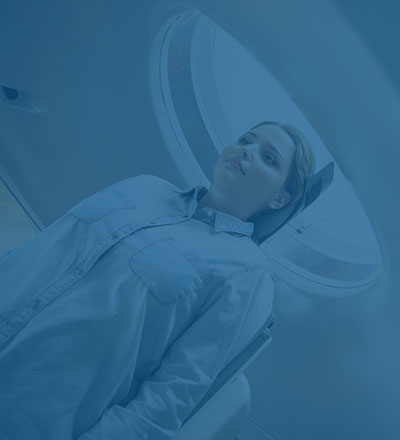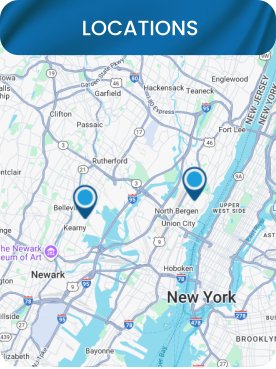Echocardiogram Tests in West New York, and West Hudson, NJ
An echocardiogram is an ultrasound test that uses sound waves to examine the heart’s structure and function, diagnosing conditions like cardiomyopathy and valve disease. Different types of echocardiograms are available, depending on the test’s purpose and the patient’s health. At Advanced Magnetic Imaging and Advanced Open MRI, our team of specialists offers echocardiogram tests to diagnose heart conditions. For more information, contact us or request an appointment online. We have convenient locations to serve you in West New York, NJ and West Hudson, NJ.


Table of Contents:
What is an echocardiogram used to diagnose?
How long does an echocardiogram take?
What should you not do before an echocardiogram?
Why would my doctor do an echocardiogram?
Echocardiograms are a diagnostic imaging process used to get images of the heart using an ultrasound, which is why it can also be known as a heart ultrasound. Echocardiograms look at the heart’s structure using sound waves that create an image, this can help diagnose coronary artery diseases, congenital heart disease, blood clots, cardiomyopathy, or other potential structure issues involving the heart. Given the nature of echocardiograms, they are a very common procedure that is used as they can be non-invasive and create images of a part of the body that cannot be seen otherwise.
There are several types of echocardiograms that professionals will use, including:
– Transthoracic Echocardiogram (TTE): Transthoracic is the most commonly used echocardiogram as it is normally non-invasive or only mildly invasive, as the ultrasound wand used is only placed against the skin of the chest.
– Transesophageal Echocardiogram (TEE): This type of echocardiogram is much more invasive as an endoscope is placed down the esophagus to capture heart images.
– Exercise Stress Echocardiogram: This is when an echocardiogram is taken before and after the patient has exercised to determine how the heart functions under stress.
Both TTE and TEE can be done using multiple techniques. There are 2D and 3D echocardiograms that can see all the different angles of the heart to evaluate its function, and there are also Doppler echocardiograms, which capture images of the flow of your blood and the directions of movement and color. Doppler echocardiograms that use dye to evaluate the blood flow use the color to be able to differentiate the blood flow directions. There is also stain imaging, in which contrast dye is used to be able to see the structure of the heart more clearly, catching all the movements of the heart muscle to be able to capture any early signs of heart conditions.
The average time it takes for an echocardiogram can be dependent on the type of echocardiogram being done. Patients can expect the procedure to take between 40 and 60 minutes, with the potential for it to take up to 90 minutes if they are having a TEE. It is best to discuss this with your doctor before your appointment so you can best expect how long your echocardiogram will take, especially in the event of an exercise stress echocardiogram, as this could also take longer than 90 minutes.
It is best to discuss with your doctor what you should not do before an echocardiogram, as in some circumstances, such as an exercise stress echocardiogram, you should not eat or drink anything 4 hours before the procedure is done. Your morning medications should be taken as normal unless you are advised otherwise by your doctor, and if you smoke, you should not smoke on the day of testing. It is also recommended to dress comfortably for the procedure, wearing loose-fitting clothes and shoes that you would normally wear to exercise. If you know you are not receiving an exercise stress echocardiogram, you can wear your normal daily shoes rather than your exercise shoes, but it is still important to wear loose-fitted clothing, as tight clothes can restrict blood flow and could cause discrepancies, and for accessibility, your cardiologist will need access to your chest for the ultrasound and electrodes that will be placed there.
Your cardiologist or primary care physician may request that you have an echocardiogram if you are displaying symptoms of potential heart problems or as a routine check-up if you have a history of cardiovascular problems or have a congenital issue such as a heart murmur. Reach out to us today to learn more about our services.
Echocardiograms are an amazing diagnostic tool for establishing and understanding any heart-related conditions, to better understand how the heart is functioning, or to monitor existing heart conditions. Echocardiograms are very common noninvasive procedures that can help improve your overall health by establishing or determining any problems with the blood flow of the heart or the structure of the heart. For more information, contact us or schedule an appointment online. We serve patients from West New York NJ, North Bergen NJ, Union City NJ, Guttenberg NJ, Weehawken NJ, Hoboken NJ, Fort Lee NJ, Englewood NJ, East Rutherford NJ, Jersey City NJ, West Hudson NJ, Newark NJ, Nutley NJ, Secaucus NJ, Belleville NJ, Hoboken NJ, Bloomfield NJ, and the surrounding areas!

ADDITIONAL SERVICES YOU MAY NEED




